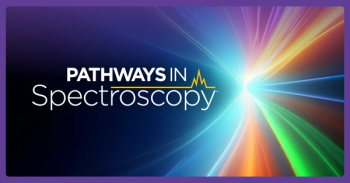
- The SciX 2021 Preview and Companion Guide
- Volume 36
- Issue S9A
Beyond the Beaker: How to Advance Your Scientific Career
Dr. Jeanita Pritchett offers insight on how science, technology, engineering, and math (STEM) students can transition into a successful scientific career after graduation.
I’ve got the STEM degree. Now, what’s next? How do I prepare for an interview? How do I land a leadership role? What do I do if I don’t want to work in a laboratory?
These are common thoughts that many people in science, technology, engineering, and math (STEM) fields face as they are deciding what steps to take to get to their ideal career. While navigating through school or the early stages of a STEM career, emphasis is typically placed on the technical aspects needed within the field. Countless hours are spent learning how to master a hands-on technique to exhibit expertise in a subject or discipline. However, advancing a STEM career and moving up the leadership ladder requires additional skills outside of the technical expertise needed for the laboratory.
Transitioning into a successful career demands skills outside of the knowledge, expertise, and research acquired through attending an academic institution. It requires gaining awareness about what is needed to be fulfilled at work and investing time in developing soft skills—interpersonal skills, behavioral traits, and personal competencies that go beyond technical and analytical skills. Soft skills help to facilitate effective engagement with others, drive employee satisfaction, and ultimately complement any technical requirements needed for a job. Managers often seek individuals who can harmonize technical and soft skills. Common soft skills include those related to:
- effective communication
- collaboration
- team building capacity
- emotional intelligence
- time management
- decision-making
- critical thinking
- networking.
Because these skills are so valuable, it is beneficial to think of them as “career assets” rather than a simple set of skills. Why is that? By definition, an asset is a useful or valuable thing, person, or quality—much like monetary assets. You should acquire a broad portfolio of these professional assets for your career to flourish.
As you navigate your career, keep a few of these suggestions in mind:
- Begin with the end in mind. Crafting a vision for what you need to feel fulfilled in life, both professionally and personally, is key to manifesting those dreams. Check in with yourself often about your needs, and write them down! This will help to ensure that all of the things that you are doing are leading you toward your definition of success.
- Set S.M.A.R.T. goals and create an action plan. The S.M.A.R.T. framework is a great way to set goals so you can remain accountable. The acronym stands for specific, measurable, attainable or achievable, relevant or realistic, and time-bound. This method helps to clarify your goals, focus your efforts, and prioritize efficiently so that you can manage your time wisely. After crafting your goals, break down projects into manageable pieces to put your plan into action. Build your personal board of directors. Identify mentors, advisors, coaches, and sponsors to aid in your professional development and support you as you advance your career.
- Network, network, network! As the saying goes, it’s not what you know, it’s who you know. Practice networking as much as possible, and seize unconventional opportunities to connect with others. Networking is about planting seeds that can be cultivated into future relationships. As you engage with others, be sure to articulate who you are, what you do, and most importantly, where you see yourself going. Remember, your network equals your net worth.
- Be prepared to navigate the job search and interview like a pro. When updating your CV or resume, focus on including statements of impact, and aligning them with keywords found in the job posting. Prepare for interviews by researching the company, and be ready to ask meaningful questions. If you are struggling with preparing for the interview, focus on who, what, where, when, why, and how. Who are you? What do you do or what can you do for the company? Where do you see your career going, or where do you see yourself fitting into the company? When can you start? Why should they hire you? And, how will you get the job done?
- Tap into your emotional intelligence. Having a good sense of your emotions and how they influence your behavior and interactions with others can be the foundation to developing meaningful relationships with those around you.
- Communication is key. Get to know what your communication style is, and practice regularly. Focus on the 6 C’s of Communication: clarity, conciseness, credibility, candor, composure, and connection. As you engage with others, be mindful of non-verbal cues, and practice active listening to deepen conversations.
- Get to know yourself. Identify your greatest strengths (your “super powers”) and use them strategically. Don’t be afraid to lean into areas where you need improvement, to prevent weaknesses from becoming your “kryptonite.” Be open and receptive to feedback and critique.
- Get comfortable with being uncomfortable; it’s where the growth is. As you navigate your career, remain agile, flexible, and resilient.
- Embrace a leader’s mindset. Leaders inspire and motivate others by building authentic relationships and keeping a positive mental attitude. Embrace who you are and strive to keep growing into the best version of yourself.
Summary
Overall, the best thing to remember about your career is that you are in charge of determining the direction that it will head. Don’t be afraid to revisit your plans, and pivot as needed to make sure that you are being fulfilled. Along the way, make sure that you find ways to acknowledge and celebrate your “wins” to help you stay motivated. Set goals, and be intentional about your actions to achieve success on your own terms.
The “Beyond the Beaker” workshop that was originally scheduled for SciX 2021 had to be cancelled, but the SciX organizers look forward to offering this workshop at future SciX conferences. Dr. Pritchett’s article speaks to SciX’s strong support of students and early career professionals.
Articles in this issue
over 4 years ago
Exploring Neurochemistry Using Raman Spectroscopyover 4 years ago
Recording the Raman Spectrum of a Single MoleculeNewsletter
Get essential updates on the latest spectroscopy technologies, regulatory standards, and best practices—subscribe today to Spectroscopy.




